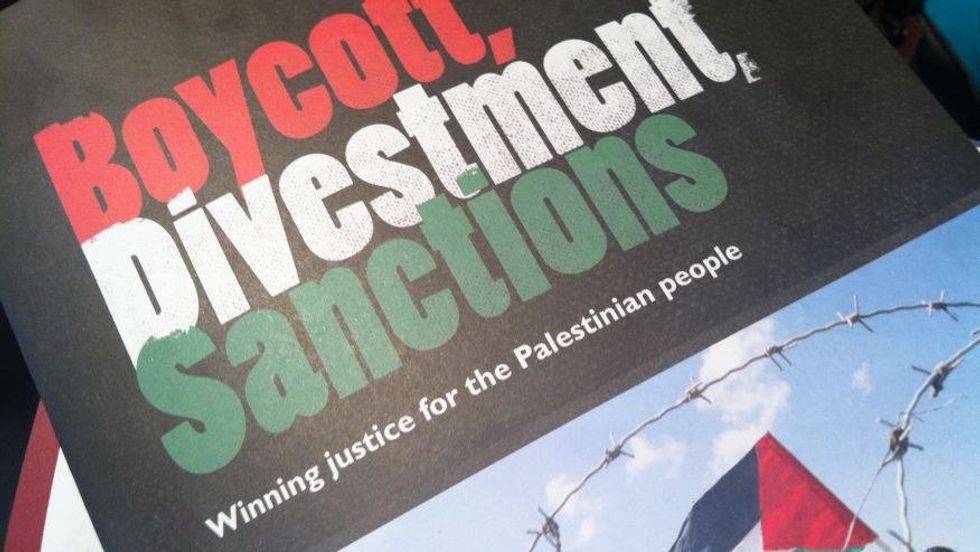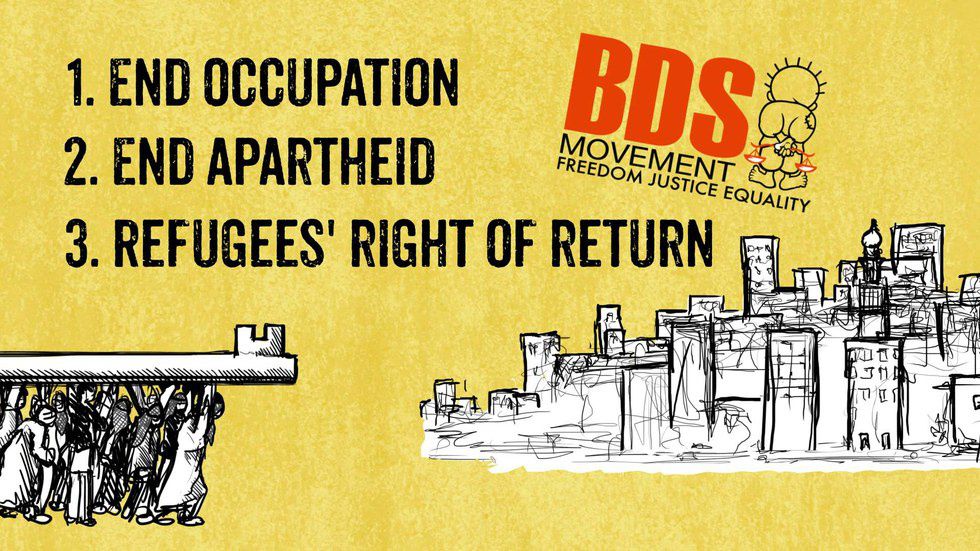Initiated in 2005 by 170 Palestinian civil society groups, the Boycott, Divestment and Sanctions (BDS) campaign has been perceived as a higher level of threat to Israel than the ongoing military struggles with the Palestinian guerilla fighters.
The campaign is based on three simple titles: Boycott, or the refusal to buy products from companies that enable and profit from Israel’s illegal occupation of Palestinian land and its violation of human rights; this also includes the academic boycotting, in which we pressure our institutions to refuse to accept research funding from, and to refuse to offer speaking invitations to, companies which enable and profit from Israel’s occupation; Divestment, which pressure our academic institutions to withdraw investments from, and cut ties with, offending companies; and Sanctions, which pressure governments and organizations to cut their military and economic ties with Israel until it complies with international law.
BDS is going viral in first-world countries where human rights is not a debatable issue. For this reason, various academic institutions nationwide have decided to adopt the regulations of BDS; in California, five out of 10 UC campuses have voted in favor of divesting from companies that profit from Israel’s occupation and abuse of Palestinian’s basic human rights, UC Davis being the fifth UC Campus, which passed the resolution in May 2015.
The movement’s goals is simple and straightforward. It calls for the ending of the Israeli occupation of the Palestinian lands and withdrawing its troops and settlers back to the 1967 borders and dismantling the wall, Also, it calls for the recognition of the equal rights of the Arab Palestinian citizens of Israel and, most importantly, promoting the full rights of millions of Palestinian refugees to return to their homes as specified by UN resolutions.
There are various reasons why we all should be actively part of BDS movements. First of all, BDS is proactive and not reactive. It sheds the light again on the abuse of the Palestinians’ fundamental human rights. Also, it is simple, as in anyone can join: students, families, employees, academic institutions, even governments. As students, we can raise the demands to our universities to urge them to cut out any academic collaborations with universities and institutes and corporations that actively support the Israeli occupation of Palestine.
The Palestinians are not asking for a military intervention to protect their rights for a better living, nor are they asking for a charity campaign. Their call is simple: if we feel that Israel is inhumanely treating them and violating the universal declaration of human rights, then all what we have to do is stand in solidarity with them and actively boycott Israel. BDS and all the boycott movements in general are campaigns that are designed for people who feel that they are involved in the struggle but cannot fight due to all the social and geographic constraints.
Stephen Hawking, Roger Waters and many other figures have joined the campaign. United Auto Workers in California, which unionizes more than 13,000 teaching assistants and student workers at University of California, voted to endorse the global BDS Movement. You can also act today. Replace all the items on your grocery lists with ones that you are certain don’t engage in investments on the Palestinian stolen lands. Look up suspicious brands and learn the stories behind every investment made by multinational corporations, and call out for the complete divestment of our campus from any ties or relations with companies that support a state that violates the basic rights of millions of civilians.
Campaign details and lists of products/companies that are targeted by the BDS movement can be found here: http://www.bdsmovement.net/

























